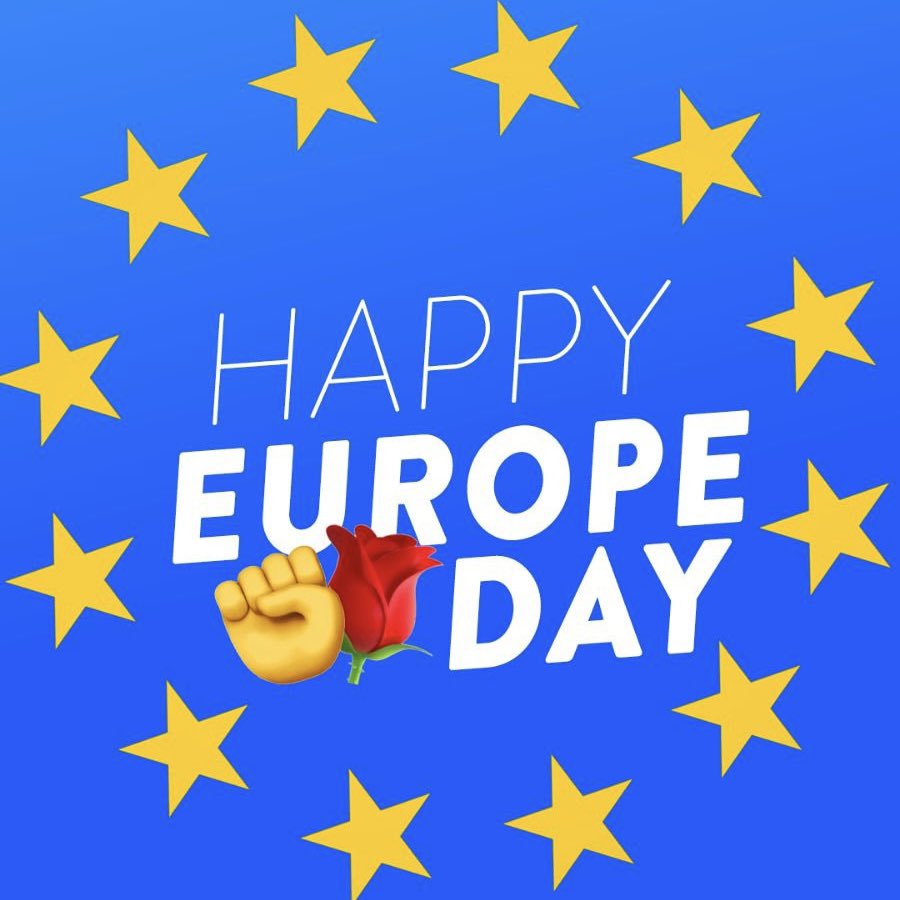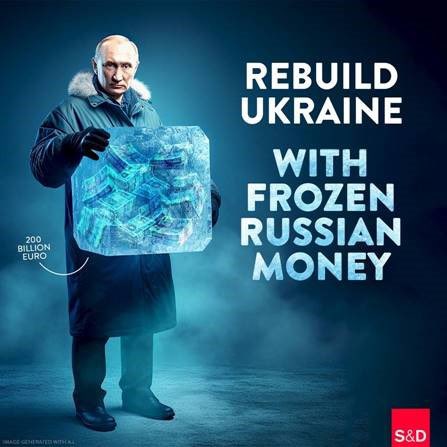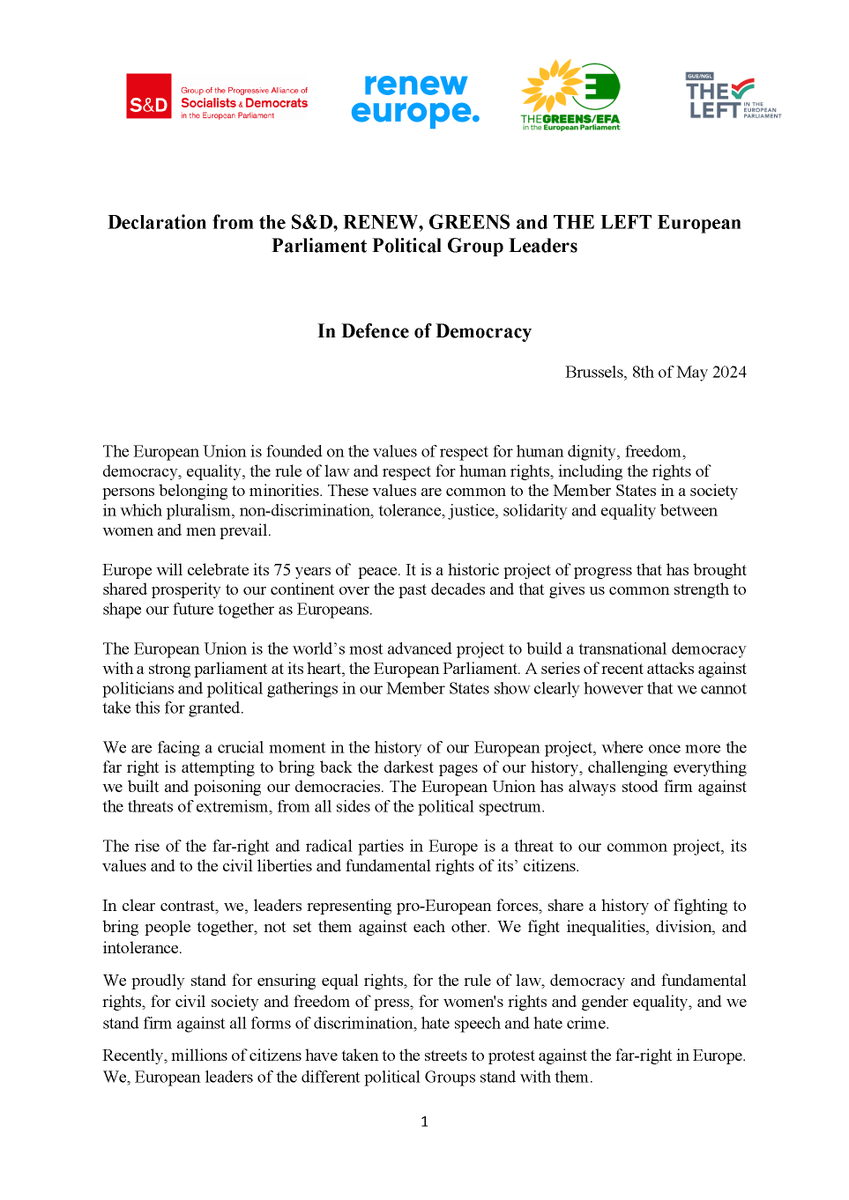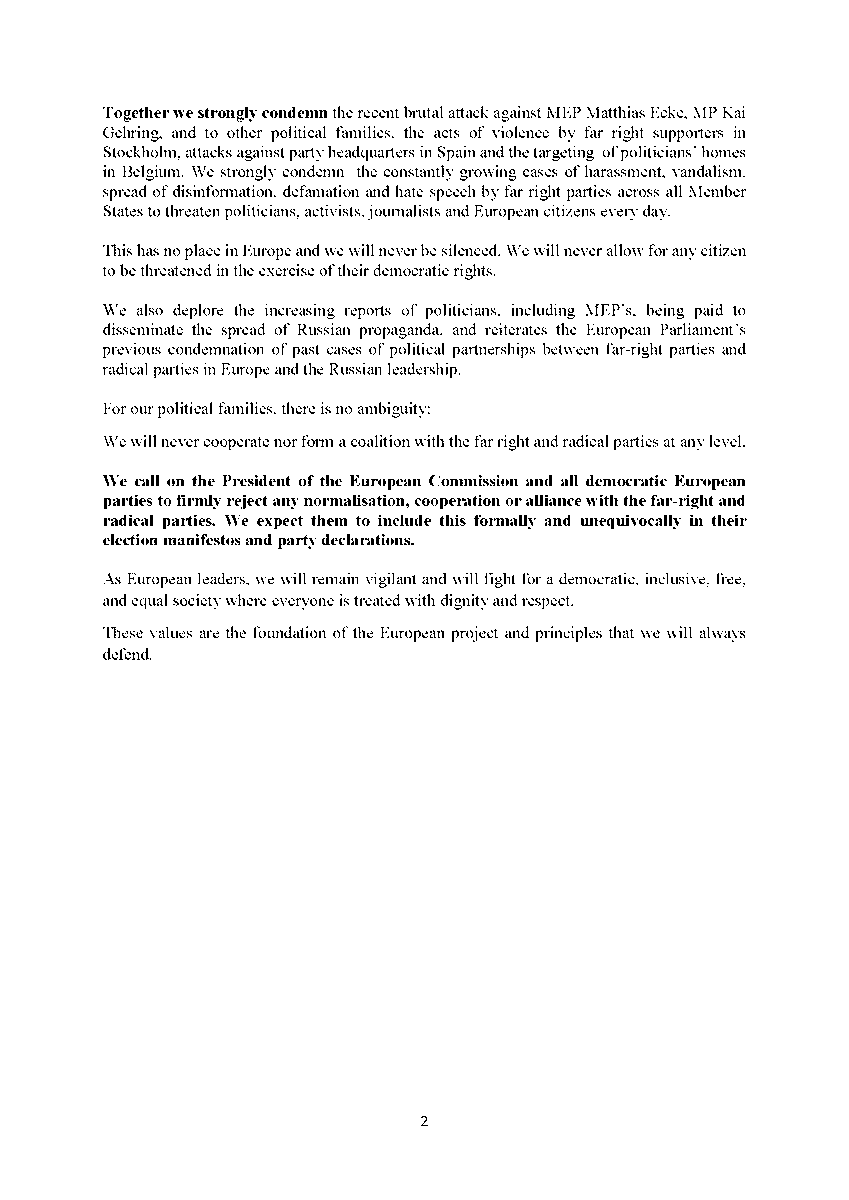-
Publication
-
-
Publication
-
-
Opinion article
-
It’s crucial - but no longer enough - to just mitigate climate change. In the fastest warming continent on the planet, we need to take care of the consequences, which are already affecting the most vulnerable. Mitigating climate change is no longer enough:…
On 9 May, we celebrate our home. The 🇪🇺Union was built so that conflicts between the continent’s countries would be unthinkable. Peace, democracy, cooperation, equality and solidarity are the pillars on which our Union is built. And we pledge to always protect them. #EuropeDay
Russia's blood money must be used to help rebuild Ukraine! Today's agreement to use profits from frozen Russian state assets to assist Ukraine is a step in the right direction. But more can and should be done. The assets themselves should be put to use.
At our initiative, leaders of @TheProgressives, @RenewEurope, @GreensEFA and @Left_EU are calling on all democratic European parties to reject any normalisation, cooperation or alliance with far-right and radical parties. Our Declaration in Defence of Democracy comes in…
When far-right activists attacked our comrade Matthias Ecke in Dresden last week, not only did they attack an elected representative. They attacked our democracy and our freedoms. Never shall we surrender to extremist violence and hatred. We stand in solidarity with Matthias and…
“Very concerned by revelations by @kallafakta 🇸🇪, on how far-right Sweden Democrats set up troll factories on social media to deliberately spread lies &disinformation. @ThierryBreton & @VeraJourova must investigate & enforce #DSA for the integrity of #EUelections” Iratxe García
We strongly condemn Israel’s attack on Rafah. This is not just an attack on a city: it is an attack on the fundamental rights and humanity of its people! It shows Netanyahu is not interested in a ceasefire. The international community must step up and act. Only peace can…
On the 6th to 9th of June, go vote in the European Elections 🗳️🇪🇺 #politics #govote #europea #europeanunion #elections #ballot
Every year, on 9 May, we celebrate our home. The European Union was built so that conflicts between the continent’s countries would be unthinkable. Peace, democracy, cooperation, equality and solidarity - these are the pillars on which our Union is built. And we pledge to always protect them. You…
Gone are the days when greedy companies could exploit and destroy in full impunity! Thanks to the Socialists & Democrats, the European Parliament passed a historic law that will force companies to perform due diligence checks throughout their supply chain, to ensure the products they make do not…
How to convince more people to trust the EU? In our view, increasing integrity and transparency of EU institutions is the first necessary step. That is why we think MEPs should not be able to lobby on behalf of a company while holding a mandate. Makes sense, right? Surprise, surprise... Sadly…
When far-right activists attacked our comrade Matthias Ecke in Dresden last week, not only did they attack an elected representative. They attacked our democracy and our freedoms. Never shall we surrender to extremist violence and hatred. We stand in solidarity with Matthias and all those who…
In the latest episode of What’s Left, we discuss the climate emergency and how the EU is addressing it through its landmark Green Deal - a package of policies paving the way for climate neutrality by 2050 in a socially fair way. We championed a Green Deal with a red heart, and we'll continue to do…







































